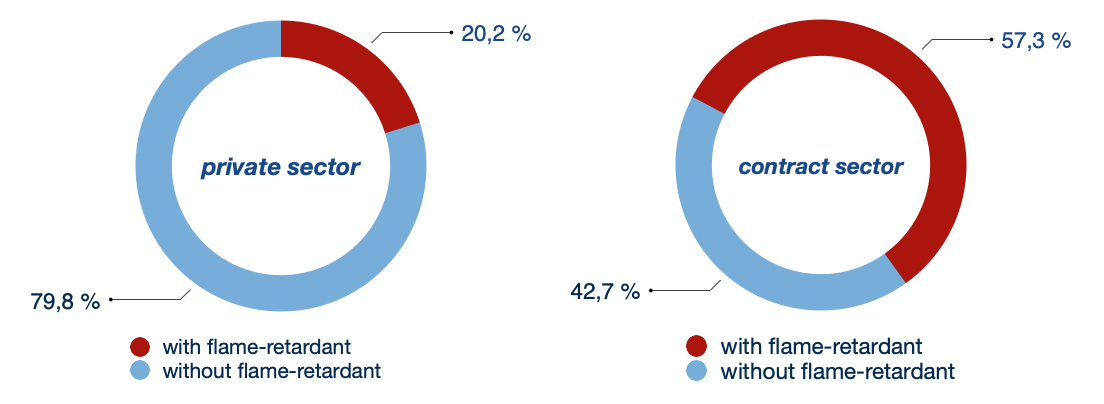Saftey at Home
Why are flame retardants used at all?
Flame retardants are used to prevent the development of a fire and inhibit the spread of flame once a fire has started. Flare retardants made of different compounds are added to many items in daily use, for example upholstered furniture in vehicles, home textiles and electrical appliances. In these instances, brominated and chlorinated organic compounds are the most effective, however, they are harmful to the environment. It is therefore important to be certain that the benefits of using these materials outweighs the potential harm.
Is the use of flame retardants regulated by law?
Use of flame retardants in textile floor coverings in the European Union

Carpets produced by ECRA member companies and are registered in the product information system PRODIS, a joint action by ECRA and GUT e.V., do not contain any brominated or chlorinated flame-retardants. The commonly used flame retardant is ATH (aluminium trihydroxide).
For more details please visit the GUT webpages gut-ev.de or gut-prodis.eu.
